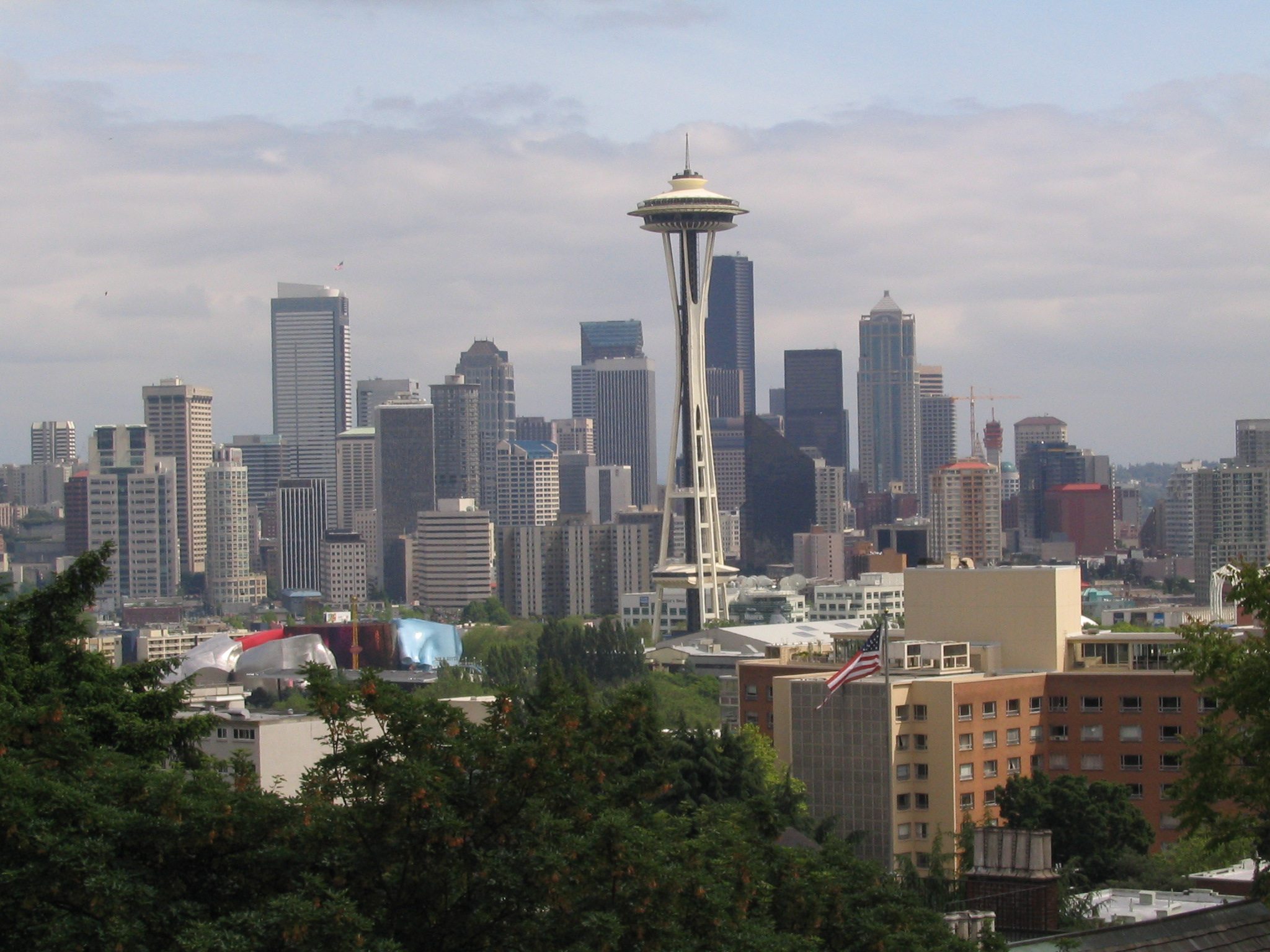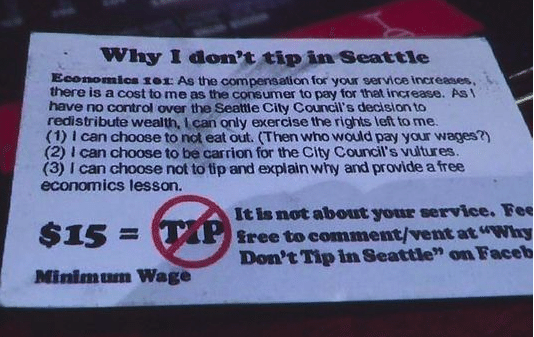The unintended – or even intended – consequences of the liberal push to raise our state’s already-highest-in-the-nation minimum wage are starting to materialize. And it doesn’t look good for the workers who were allegedly going to benefit from this push by the labor bosses at places like the Service Employee International Union (SEIU).
As Shift reported, Ivar’s in Seattle has raised menu prices and changed its tipping policy to deal with the $15 minimum wage. The restaurant is telling customers that, because service is included in the pricing of the menus, they no longer need to tip their servers or bartenders. Customers are welcome to do so, but it’s not expected.
As restaurants across Seattle raise prices in order to account for higher costs due to the $15 minimum wage, some customers are asking why they should leave a tip. In fact, a certain photo posted on Reddit spurred quite a debate on the very subject. Check out the photo below:
The card, left at a bar or restaurant, reads: “Why I don’t tip in Seattle.” And, as King 5 News puts it, “essentially tells the server that as food costs are driven up by wage increases, the customer chooses to no longer leave a tip.”
Whatever side of the debate you agree with, the Washington Restaurant Association (WRA) cautions patience for customers and businesses. The reality is that “businesses experiment and look for ways to adjust to these higher wage costs.” Certainly, “tipping is not untouchable, and that it should be part of any discussion about changes that restaurants might be making.”





